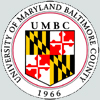| |||||||||||||||||||
Tips:  Range on the Protein: Protein ID Protein Position Domain Position:  No Conserved Features/Sites Found for HELP No Conserved Features/Sites Found for HELP
|
|---|
Weblogos are Copyright (c) 2002 Regents of the University of California
| DMDM_info@umbc.edu | 1000 Hilltop Circle, Baltimore, MD 21250 | Department of Biological Sciences | Phone: 410-455-2258 |




 HELP motif. The founding member of the EMAP protein family is the 75 kDa Echinoderm Microtubule-Associated Protein, so-named for its abundance in sea urchin, sand dollar and starfish eggs. The Hydrophobic EMAP-Like Protein (HELP) motif was identified initially in the human EMAP-Like Protein 2 (EML2) and subsequently in the entire EMAP Protein family. The HELP motif is approximately 60-70 amino acids in length and is conserved amongst metazoans. Although the HELP motif is hydrophobic, there is no evidence that EMAP-Like Proteins are membrane-associated. All members of the EMAP-Like Protein family, identified to-date, are constructed with an amino terminal HELP motif followed by a WD domain. In C. elegans, EMAP-Like Protein-1 (ELP-1) is required for touch sensation indicating that ELP-1 may play a role in mechanosensation. The localization of ELP-1 to microtubules and adhesion sites implies that ELP-1 may transmit forces between the body surface and the touch receptor neurons.
HELP motif. The founding member of the EMAP protein family is the 75 kDa Echinoderm Microtubule-Associated Protein, so-named for its abundance in sea urchin, sand dollar and starfish eggs. The Hydrophobic EMAP-Like Protein (HELP) motif was identified initially in the human EMAP-Like Protein 2 (EML2) and subsequently in the entire EMAP Protein family. The HELP motif is approximately 60-70 amino acids in length and is conserved amongst metazoans. Although the HELP motif is hydrophobic, there is no evidence that EMAP-Like Proteins are membrane-associated. All members of the EMAP-Like Protein family, identified to-date, are constructed with an amino terminal HELP motif followed by a WD domain. In C. elegans, EMAP-Like Protein-1 (ELP-1) is required for touch sensation indicating that ELP-1 may play a role in mechanosensation. The localization of ELP-1 to microtubules and adhesion sites implies that ELP-1 may transmit forces between the body surface and the touch receptor neurons. No pairwise interactions found for the domain HELP
No pairwise interactions found for the domain HELP





